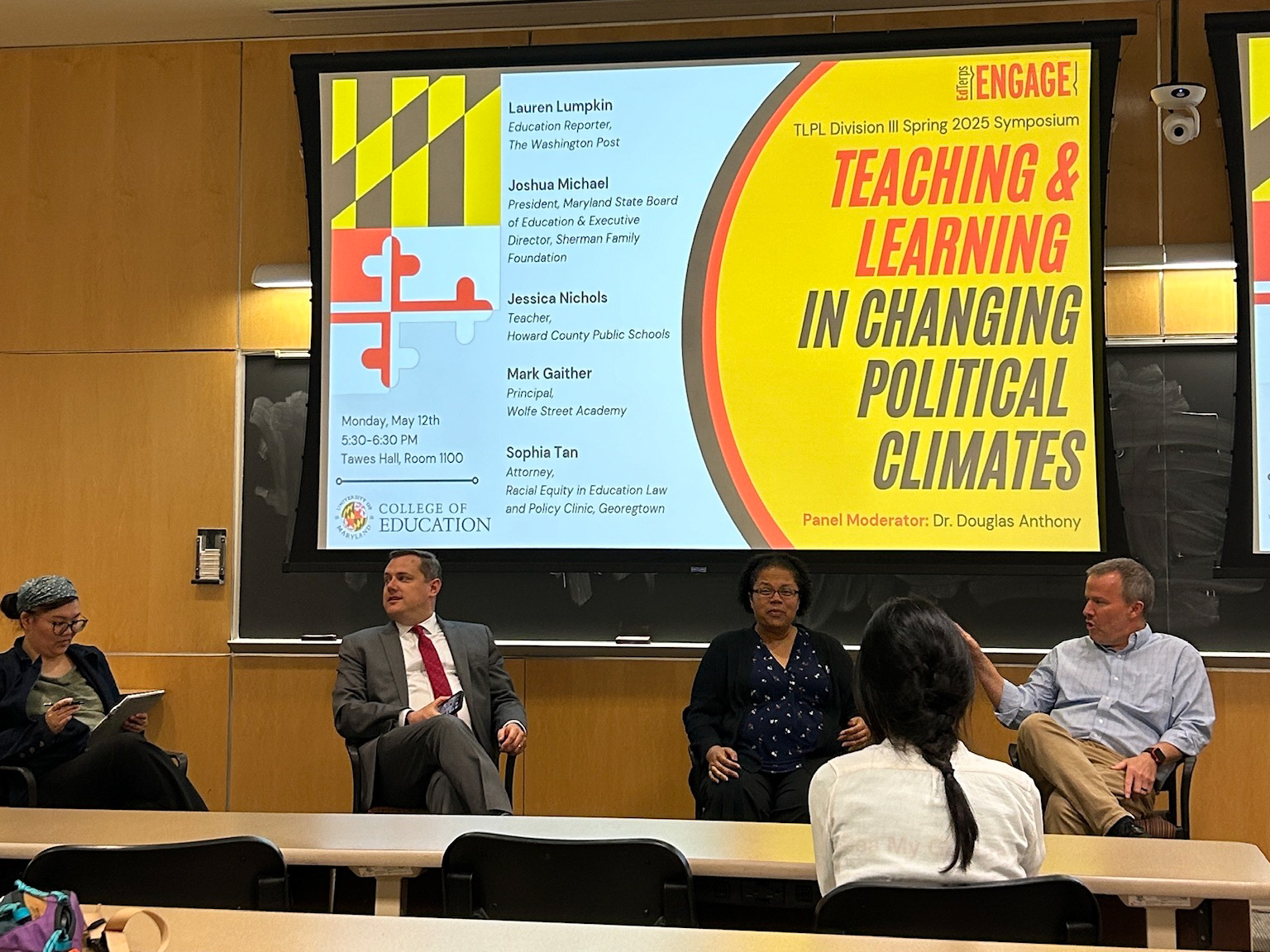By Tess Phillips
For The Diamondback
Education professionals discussed the state of education at a University of Maryland symposium at Tawes Hall on Monday evening.
This university’s teaching and learning, policy and leadership department in this university’s education college hosted the hour-long panel. The event was titled “Teaching and Learning in Changing Political Climates.”
For the panel, the department hosted five education professionals from subjects such as law, policy and journalism. Due to their backgrounds within the education field, the panelists offered insights into how the field is experiencing changes, especially under U.S. President Donald Trump’s administration.
The panel was moderated by Douglas Anthony, the Doctorate of Education in School System Leadership’s director at this university.
Anthony asked the panelists about the political climate, the challenges presented in education and ways to address problems at hand.
One panelist, Maryland State Board of Education President Joshua Michael, described the impact of the current political climate on education policy.
“I would describe it as there is this massive, looming black cloud above us,” Michael said. “More than anything, there is a looming potential to dismantle public education, but it has not happened yet.”
[Prince George’s County community members rally for better teacher working conditions]
Michael referenced how Trump has passed several executive orders targeting education, which have been struck down in court. Trump signed an executive order in March to dismantle the U.S. Department of Education, the Associated Press reported.
Panelist Jessica Nichols, a teacher at River Hill High School in Howard County, mentioned how she has observed changes while teaching in her county.
She said before Trump took office, his administration sent a “threatening” letter to the Howard County executive explaining that U.S. Immigration and Customs Enforcement would be coming into their community.
After the letter, Nichols said she observed a sharp decline in attendance of students who have at least one undocumented parent.
The panelists also mentioned issues regarding socioeconomic class as one of the major problems in the Maryland education system.
“Our biggest challenge right now is how we educate Black and brown children and children who live in poverty, white, Black and brown,” Michael said.
[UMD researchers left with uncertain future after NSF cuts 14 grants]
Although the panelists voiced concerns on the political climate’s impact on education, they ended the panel discussing why they are still hopeful for the future of education.
“One of the things that gives me extreme amounts of hope is that young people are still choosing this profession,” Nichols said. “These young people told me things like, ‘I believe that magic can still happen here.’”
Zaniah Anderson, a public policy graduate student interested in education policy, attended the event to hear what current educators are thinking about policy changes.
Anderson echoed the panel when describing how there is a collaborative space that now presents itself in the education field.
“There was just a lot of power in the room,” Anderson said. “There’s a lot of space right now for collaboration, no matter who you are, and I don’t think that we would have gotten there without the pressure being applied by the current administration.”



